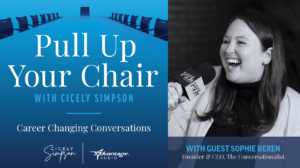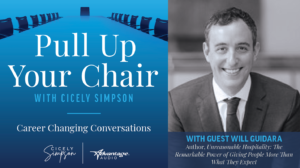President Donald Trump
- A lot of tremendous things are happening. The number of new positive cases continue to decline nationwide. Recent hotspots appear to be stabilizing. The hotspots are, in some cases, very interesting what’s going on. They’re going down; they’re going in the right direction. Cases in the Boston area are now declining. The Chicago curve appears to have flattened, which is terrific. Detroit is past its peak.
- These trends demonstrate that our aggressive strategy to battle the virus is working and that more states will soon be in a position to gradually and safely reopen.
- I do want to mention a man who’s done a very good job for us: Dr. Robert Redfield. He was totally misquoted in the media on a statement about the fall season and the virus. Totally misquoted. I spoke to him. He said it was ridiculous. He was talking about the flu and corona coming together at the same time. Corona could be just some little flare-ups that we’ll take care of. We’re going to knock it out. We’ll knock it out fast. That’s what he was referring to: coming together at the same time.
- The headline in the Washington Post was totally inaccurate. The statement wasn’t bad in the Post, but the headline was ridiculous, which is fake news. CNN is fake news like crazy, and they had just totally the wrong story, which they knew. They were asked to change it, and they wouldn’t do that. It was false.
CDC Director Dr. Robert Redfield
- I really do think it’s important to clarify this as we build the confidence of the American people.
- When I commented yesterday that there was a possibility of next fall and winter, it could be more difficult, more complicated when we had two respiratory illnesses circulating at the same time: influenza and the coronavirus.
- It’s really important to emphasize what I didn’t say. I didn’t say that this was going to be worse. I said it was going to be more difficult and potentially complicated because we’ll have flu and coronavirus circulating at the same time.
- I want to emphasize that we continue to build the nation’s public health infrastructure to ensure that we have the capacity to sustain the containment mode. Those of you who heard me talk before, I’ve told you that in January and February. We were in the containment mode. Unfortunately, the virus overwhelmed where we got into this extreme mitigation.
- We are building that public health capacity now to make sure that we stay in the containment mode for the upcoming fall and winter season so we will not need to resort to the kind of mitigation that we had to this spring.
- I have confidence that our public health response of early case recognition that we’ve talked about, isolation, and contact tracing, combined with our plans for increased surveillance, particularly for the most vulnerable, will be an effective public health strategy so our nation will be able to maintain itself in the containment mode.
- The key to my comments and the reason that I really wanted to stress them was to appeal to the American public to embrace the flu vaccine with confidence.
- One of the greatest tools we have as we go through the fall-winter season that we’re into is to get the American public to embrace the influenza vaccine and thereby minimize the impact of flu to be the co-respiratory disease that we confront.
Vice President Mike Pence
- The White House Coronavirus Task Force met today and, despite the fact that there have been more than 843,000 Americans who contracted the coronavirus, we grieve the loss of more than 47,000 of our countrymen.
- We continue to see encouraging signs because the American people have been putting into practice the guidance issued by the President and this task force, and they’ve been taking to heart the guidance of state and local officials.
- We are continuing to see declines in all the major metro areas around the country that have been most impacted. Numbers remain low and steady on the West Coast, in Washington State and in California. The New York metro area, New Jersey, Connecticut all appear to be past their peak.
- The Detroit metro area appears to be past its peak. The Seattle metro area remains stable. The New Orleans metro area is the most stable of all the large metro outbreaks.
- We also are continuing to see a stabilization and even declines in — in Houston and Atlanta and Nashville and Baltimore and Indianapolis and elsewhere.
- This is a tribute to the American people, to the fact that the American people have taken to heart the guidelines: the social distancing; the personal hygiene; the recommendation that you use the drive-through at a restaurant, rather than going in a restaurant; and avoiding groups of more than 10.
- We urge all of the American people to continue onward. We all want to reopen America. And we want to reopen our states and our communities as soon as it is safe and responsible to do so.
- The fastest way to reopen America is to continue to do what you’ve been doing. That’s the fastest way, as President Trump has said many times, to get our country working again is to put the coronavirus in the past.
- Early on, the President called forth not only the full power of the federal government, but he called forth the full weight of the American economy. I had the privilege yesterday to travel to Madison, Wisconsin, and see American industry and American workers at their very best. I thank the GE Healthcare team in Wisconsin, as well as the union machinists that I spent time with all day yesterday.
- Earlier this month, the President used the Defense Production Act to ensure that supplies could flow to GE and General Motors and Ford and other companies that were prepared to repurpose manufacturing lines and hire new workers to construct ventilators.
- At this particular plant, the machinists’ union sat down and, in less than one week, negotiated a new contract with GE Healthcare that allowed them to begin to bring in workers from around the country. They doubled their work line in one week. They’re about to triple it. They’ve been going 24 hours a day, 3 shifts, 7 days a week.
- The President promised that, by harnessing the power of the American economy, we would have 100,000 ventilators in 100 days. Thanks to the ingenuity and the hardworking Americans that I was with yesterday and other companies, we’re actually going to have 110,000 ventilators in 100 days.
- We’re also grateful to all of our healthcare workers at every level and all the work that they’re doing.
- We’re proud that our National Guard and our American military are at their side. More than 31,000 National Guard stood up around the country.
- The President has extended what’s called Title 32 authorizations for all National Guard personnel through May 31. We’re going to continue to partner with states, as the National Guard plays a vital role in testing, and in cleaning nursing homes, and in standing up states’ response.
- We have more than 5,500 active duty military personnel, including, as of yesterday, 964 medical professionals in the uniform of the United States, working in 17 hospitals in 7 states around the country.
- We’re also very proud of our team at the VA which has addressed its capacity issues. It’s not seeing cases among the veterans in its facilities increase, so they’re deploying teams to focus on nursing homes.
- We continue to build our Strategic National Stockpile. It’s growing, again, with ventilators nearly 11,000 in supply. 991 new ventilators will be added, transitioned in the near term. Every American can be confident that, should the need arise for your family member, facing serious consequences from the coronavirus to need that equipment to help them breathe, that equipment will be there.
- American businesses are stepping up. It was on April 1st that I traveled to Walmart distribution center and the President reached out to the President and CEO of Walmart to ask Walmart to get in the gowns business. We heard today that Walmart is producing 8.4 million gowns, and they will be delivered into our commercial supply to healthcare facilities around the country by the end of June.
- Honda is producing 500,000 face shields.
- New Balance is making 100,000 masks a week.
- The American people have stepped up to make the sacrifices and endure the hardship that social distancing has required, but American businesses, at every size and every means, have come together to respond to the President’s call.
- A whole-of-America approach. We’re getting there. We can see light at the end of the tunnel. We can see the day that we can reopen and put America back to work. It’s going to take all of us, continuing to make the sacrifices necessary to practice those disciplines, to get us to a place where we can reopen safely and confidently.
National Institute of Health Director of the National Institute of Allergy and Infectious Diseases Dr. Anthony Fauci
- A couple of weeks ago, when we talked about the fact that we were going to have a really bad week because the deaths, particularly driven by the situation in New York, were going to get worse and worse. As that was happening, we were starting to see some turnaround, some flattening, and some coming down.
- What has happened is that the mitigation that we put in with the first 15 days and then the 30-day mitigation program of physical distancing worked. It got us to where we are today. It is a successful formula. It is the basis for our being able to say that we can now think seriously about reopening America. For that reason, we put together a carefully thought out and well-delineated and described program for Opening Up America. The guidelines that we announced a few days ago. Those very guidelines are based on a version of the successful formula that got us to where we are.
- What I’m trying to say is that the program is not one that is going to be turn the lights on in America. We’re finished. We’re not. We have to proceed in a very careful, measured way.
- I you look at the guidelines, they are careful, and they are measured. There are certain checkpoints before you can even think about going into a phase one, and then things relax a little as you go into phase two and relax a little and you go into phase three.
- There are different dynamics of outbreaks in different parts of the country. The speed with which one can go from one to another, at the point at which you can even begin to think about the phase, is going to differ.
- I plead with the American public, Governors, Mayors, for the people with responsibility: I know one has the need to leapfrog over things, don’t do that. Do it in a measured way. This is a successful formula. The problem is if we don’t do that, there is a likelihood that we’ll have a rebound.
- The one way not to reopen the economy is to have a rebound that we can’t take care of. So, please, again, let me just close by pleading with the American public in general and those who are responsible leaders to carefully consider how we get back to normal.
Full remarks and topics covered in the answer and question portion of the briefing can be found here: April 22 Briefing


